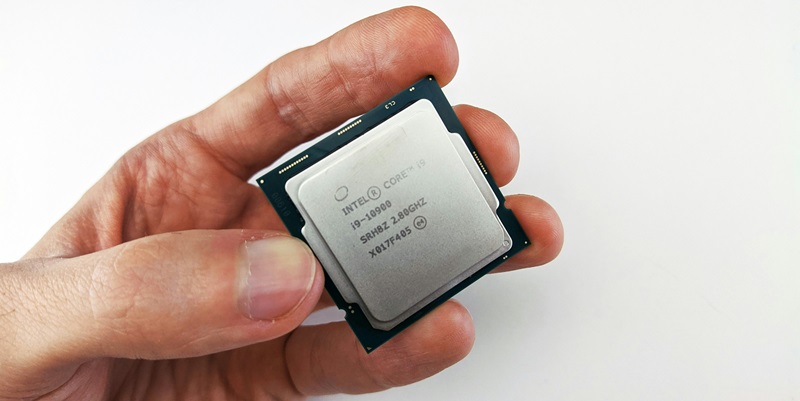Intel Corporation, a stalwart in the semiconductor industry, is currently embroiled in significant legal challenges due to alleged financial misconduct as claimed by its shareholders. The lawsuits are rooted in allegations that Intel misled investors by failing to adequately disclose various economic difficulties the company faced. The most notable lawsuit has been filed by the Construction Laborers Pension Trust of Greater St. Louis in a federal court in San Francisco, targeting Intel’s CEO Pat Gelsinger and CFO David Zinsner. The shareholders argue that Intel intentionally concealed critical information regarding instability issues with its 13th and 14th generation CPUs and the declining condition of its foundry business. This purported lack of transparency is believed to have contributed to a staggering $32 billion drop in Intel’s market valuation, significantly affecting shareholder interests.
The ramifications of Intel’s financial troubles have been extensive, leading to widespread dissatisfaction among investors. The company’s decision to implement significant layoffs amidst declining revenue only compounded frustrations. Shareholders assert that these issues were not adequately communicated, resulting in a profound sense of betrayal. The trust deficit has had a tangible impact on Intel’s market performance, as negative sentiments prevail over the company’s future prospects. Additionally, the technical troubles associated with Intel’s CPU instability have triggered several class action lawsuits, further complicating its legal landscape.
Mismanagement and Lack of Transparency
Central to the shareholders’ grievances is the claim that Intel’s leadership failed to manage the company transparently during a period of significant economic stress. The instability of the 13th and 14th generation CPUs and the deteriorating condition of its foundry business were major issues that shareholders believe were purposefully concealed. These concerns have contributed to the growing perception that Intel has not been entirely forthcoming about its operational challenges, which has eroded consumer and investor trust. The company’s failure to address and rectify these critical problems has resulted in broader negative sentiments within the market, casting doubt over forthcoming product launches, including the much-anticipated "Arrow Lake-S" desktop processors.
The economic downturn faced by Intel has been further exacerbated by workforce reductions and a notable decline in revenue. These workforce reductions, aimed at mitigating financial losses, were not clearly communicated to the shareholders, adding to feelings of mistrust. The dissatisfaction among shareholders has grown as they continue to feel left out of crucial decisions impacting the company’s economic health. The financial mismanagement allegations have not only called into question the integrity of Intel’s leadership but have also led to a significant loss of confidence in its ability to navigate through the ongoing crisis effectively.
Legal Woes and Market Sentiments
Intel’s legal challenges continue to mount with multiple class action lawsuits related to the aforementioned CPU instability issues. These lawsuits have created an atmosphere of legal uncertainty surrounding the company, dealing a further blow to its reputation. The instability issues have spotlighted the company’s broader operational deficiencies, raising serious questions about the quality and reliability of its products. This scrutiny has resulted in widespread skepticism among consumers and investors, casting doubt on the viability of upcoming product releases and Intel’s overall strategic direction.
The sharp decline in Intel’s market valuation, a significant $32 billion drop, underscores the profound impact of these ongoing issues. Shareholders are not only concerned about the immediate financial ramifications but also about the long-term outlook for their investments. Intel’s erratic performance and increasing legal liabilities have generated a climate of unease among market participants, leading to a steep decline in investor confidence. Despite these amplified difficulties, there remains a consensus among industry analysts that Intel can stabilize its situation if it can demonstrate genuine transparency and take decisive actions to address the concerns raised by shareholders and consumers alike.
Strategic Moves and the Path Forward
In an effort to navigate through these turbulent financial waters, Intel has made several strategic moves, including divesting shares in Arm Holdings while retaining exposure in other ventures. These decisions indicate a calculated attempt to restructure its business operations and mitigate financial losses. However, shareholders remain wary of these maneuvers, questioning whether they will be sufficient to restore the company’s financial health and market standing. The market’s response to these strategies will be pivotal in determining Intel’s path forward.
The pressing need for Intel to regain consumer and investor trust cannot be overstated. The company’s perceived failures in addressing operational problems and maintaining transparent communication have done considerable damage. To counteract this, Intel must prioritize transparency and demonstrate a genuine commitment to rectifying its issues. Offering compensation or other incentives to affected parties could also be a valuable step towards rebuilding shattered trust. The future of Intel hinges on its ability to confront these multifaceted challenges head-on and undertake strategic actions that reflect a commitment to both operational excellence and transparent governance.
Conclusion
Intel Corporation, a key player in the semiconductor sector, is facing major legal battles due to alleged financial misconduct claimed by its shareholders. Accusations suggest Intel misled investors by not adequately disclosing economic challenges. The most prominent lawsuit, filed by the Construction Laborers Pension Trust of Greater St. Louis in a San Francisco federal court, targets Intel’s CEO Pat Gelsinger and CFO David Zinsner. Shareholders allege Intel hid crucial information about instability with its 13th and 14th generation CPUs and the deteriorating state of its foundry business. This alleged secrecy is thought to have led to a dramatic $32 billion decline in Intel’s market valuation, harming shareholder interests significantly.
Intel’s financial woes have led to broad investor dissatisfaction. The company’s layoffs amidst falling revenues have only increased frustration. Shareholders argue these issues were poorly communicated, creating a deep sense of betrayal. This trust deficit has hurt Intel’s market performance, fostering negative sentiments about the company’s future. Moreover, technical problems related to CPU instability have sparked multiple class action lawsuits, further complicating Intel’s legal situation.

